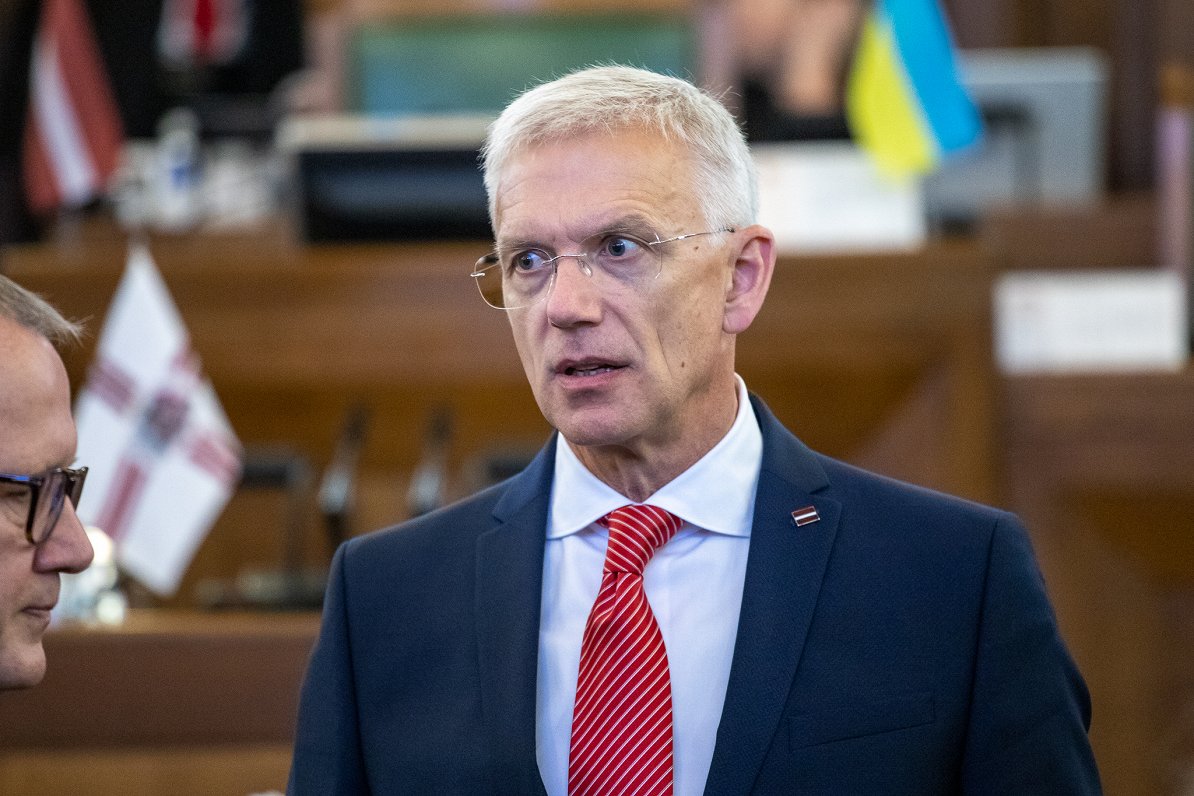Following a rather critical speech by the President of Latvia, Egils Levits, during the first session of the 14th Saeima, where Levits mentioned a number of sectors that have been neglected or badly organized in the country, Kariņš said on Wednesday that his and the president's views are largely the same. Kariņš acknowledged that, for example, the health and home affairs sectors were not fully organized.
The next government, according to Kariņš, must use ongoing crises to sort the situation out. So far, the negotiations of the future government have highlighted the position of Minister of Health as one of the least desirable.
Kariņš also stressed that there was no portfolio of a minister which would not be full of challenges, mentioning the portfolios of education and science, health, home affairs, defense, and the potential new minister for energy, climate and environment.
In the context of the intention of New Unity to create a new Ministry of Energy, Climate and Environment, Kariņš reiterated that there was no agreement on this issue with the United List. Therefore, he expressed hope that the forthcoming talks between the New Unity, the United List and the National Alliance would be able to bring clarity and conviction. The National Alliance and New Unity agreed on all issues.
If the political forces fail to agree on this intention, the government-building talks will come to an impasse, warned Kariņš. He said he wasn't sure where the problem was since the new ministry is a way to address pressing energy issues in the country. The President and industry experts also agreed.
Kariņš said: "I am convinced that in order to resolve our energy independence, also to respond to our commitment to climate objectives, the country has no plan at the moment. Two ministries - the Ministry of Environmental Protection and Regional Development and the Ministry of Economics for years are simply bickering, not going forward. [..]
"Either we finally agree, or those who are stalling [the process] admit that they do not want such a government, because maybe that is what lies at the bottom. On the one hand, there is a spirit of cooperation, but on the other I still feel resistance and reluctance. Whether it's not wanting to work together, whether it's anything else, I don't see it completely,” said Kariņš.





























